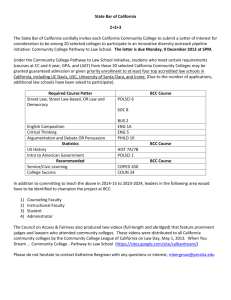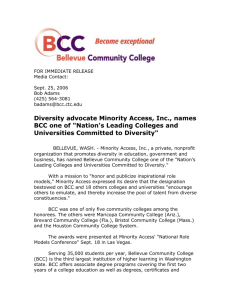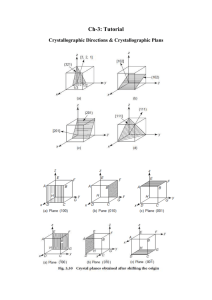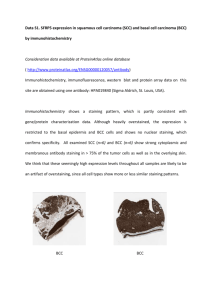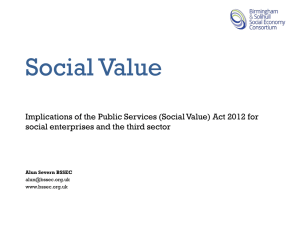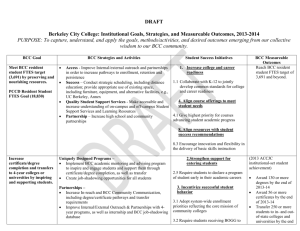Issue Summary: NC Building Code Council policy change proposal on
advertisement
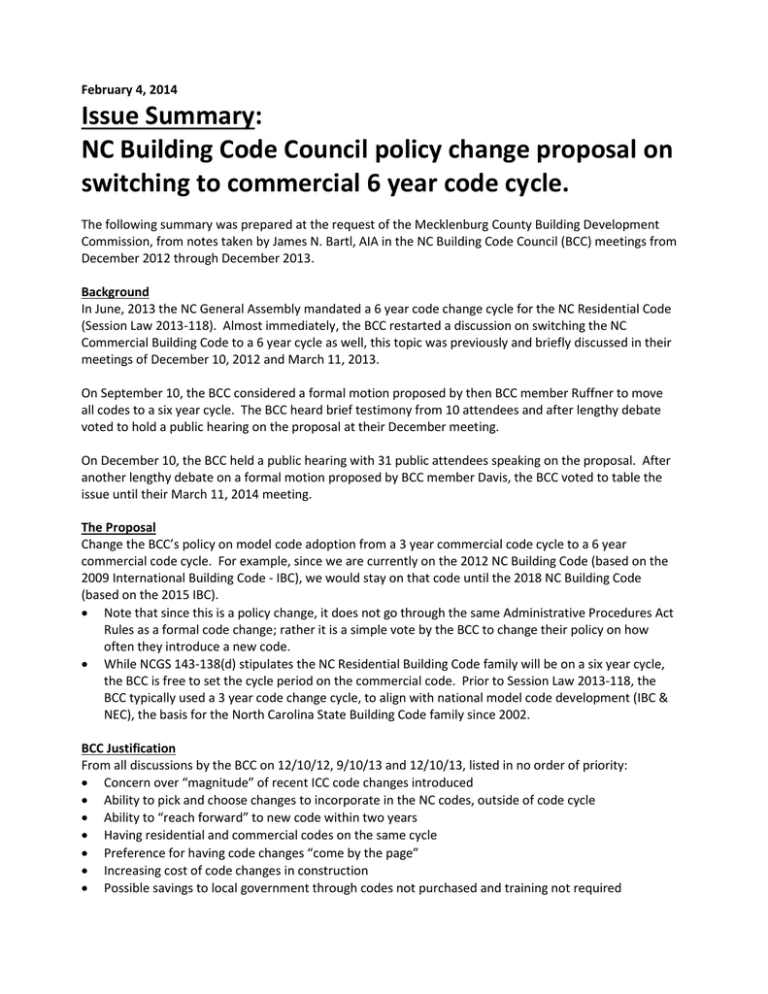
February 4, 2014 Issue Summary: NC Building Code Council policy change proposal on switching to commercial 6 year code cycle. The following summary was prepared at the request of the Mecklenburg County Building Development Commission, from notes taken by James N. Bartl, AIA in the NC Building Code Council (BCC) meetings from December 2012 through December 2013. Background In June, 2013 the NC General Assembly mandated a 6 year code change cycle for the NC Residential Code (Session Law 2013-118). Almost immediately, the BCC restarted a discussion on switching the NC Commercial Building Code to a 6 year cycle as well, this topic was previously and briefly discussed in their meetings of December 10, 2012 and March 11, 2013. On September 10, the BCC considered a formal motion proposed by then BCC member Ruffner to move all codes to a six year cycle. The BCC heard brief testimony from 10 attendees and after lengthy debate voted to hold a public hearing on the proposal at their December meeting. On December 10, the BCC held a public hearing with 31 public attendees speaking on the proposal. After another lengthy debate on a formal motion proposed by BCC member Davis, the BCC voted to table the issue until their March 11, 2014 meeting. The Proposal Change the BCC’s policy on model code adoption from a 3 year commercial code cycle to a 6 year commercial code cycle. For example, since we are currently on the 2012 NC Building Code (based on the 2009 International Building Code - IBC), we would stay on that code until the 2018 NC Building Code (based on the 2015 IBC). Note that since this is a policy change, it does not go through the same Administrative Procedures Act Rules as a formal code change; rather it is a simple vote by the BCC to change their policy on how often they introduce a new code. While NCGS 143-138(d) stipulates the NC Residential Building Code family will be on a six year cycle, the BCC is free to set the cycle period on the commercial code. Prior to Session Law 2013-118, the BCC typically used a 3 year code change cycle, to align with national model code development (IBC & NEC), the basis for the North Carolina State Building Code family since 2002. BCC Justification From all discussions by the BCC on 12/10/12, 9/10/13 and 12/10/13, listed in no order of priority: Concern over “magnitude” of recent ICC code changes introduced Ability to pick and choose changes to incorporate in the NC codes, outside of code cycle Ability to “reach forward” to new code within two years Having residential and commercial codes on the same cycle Preference for having code changes “come by the page” Increasing cost of code changes in construction Possible savings to local government through codes not purchased and training not required Mecklenburg County Code Enforcement Position For the following reasons, the Department believes this proposal will not save construction cost or local government service cost. Based on Department data, it is likely to have the exact opposite effect, driving up construction cost and the cost of local government. Today’s commercial building codes are not stand alone documents, but rather depend on dove-tailing requirements in other codes to assure public safety. Abandoning the model code format jettisons the work of the ICC Correlation Committee, checking to assure a code change does not create a conflict in another code. This likely will lead to increased errors by design professionals, required to perform the correlation on their own. The proposal is eerily similar to the days of the “NC blue pages” where the BCC meets every three months to consider code changes requested by the industry, or things they see in other codes that they would like to incorporate in the NC Building code family. The “blue page” era in NC is also a time period where, in Mecklenburg County, plan review and inspection failure rates were far higher than they are today. o Commercial plan review 1st review pass rates 1999; 21% Compared to commercial plan review 1st review pass rates 2011;75% o Inspection pass rates in August 1996; overall 66%, building only 57%. Compared to inspection pass rates in Fy12 (av’g at 6/30/12); overall 85%, building only 79% If the BCC follows a strategy of “pick & choose” code changes every three months, it is likely that in a short time, the NC Building Code would have no relationship to the ICC model code. We believe that will have the following negative impact on the industry and the Department. o The cost of training will go up as NC is shut out from access to ICC model code training. Training classes would require extensive tailoring to a peculiar set of NC requirements. o Plan review and inspections failure rates will go up, as the industry has trouble staying abreast of change the BCC makes every three months. o Cost for contractors and local governments will increase. When the industry has trouble staying abreast of changes the BCC makes every three months, errors will be made in field installations. Tearout will be required to comply with the code and construction cost will increase accordingly. When plan review and inspection failure rates go up, if we seek to maintain current performance levels, we will need to increase plan reviewers and inspector populations to keep up. Consequently, Department service cost will rise significantly. On the cost of training and code book o The cost of code books is a fraction of a percent of the Department budget. o The strategy envisioned by the BCC could easily lead to AE’s and GC’s being forced to maintain loose leaf binders of code changes, as the BCC creates new provisions every 3 months. o Today, training to keep up with changes in construction technology is a given, no matter what the code cycle. However, training on a 3 year cycle is far more cost effective than keeping up with changes every three months, which would likely cause the industry and department to almost constantly create new training initiatives to inform their respective staff of the code change decisions made by the BCC every three months.
